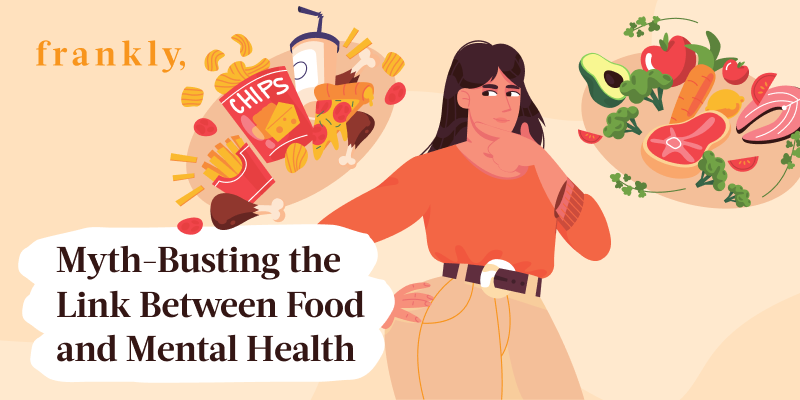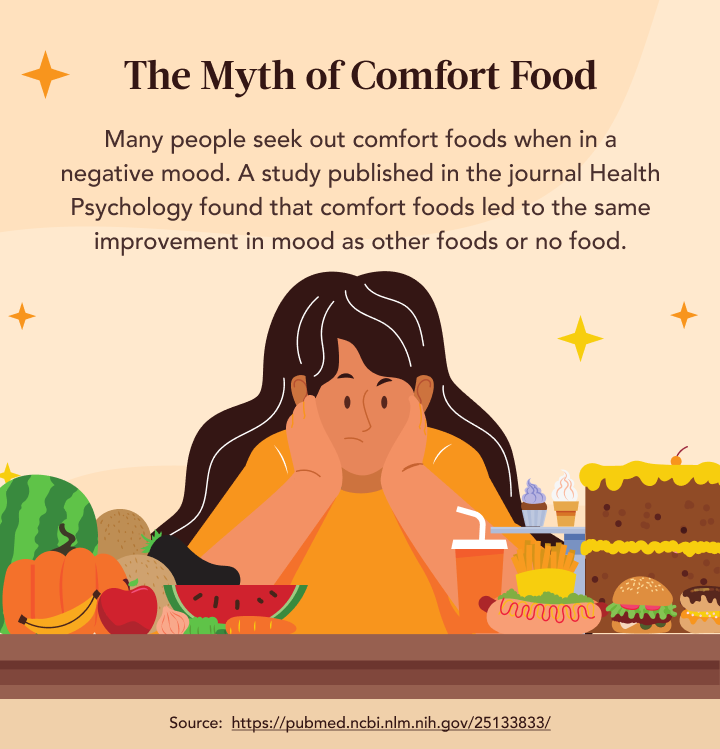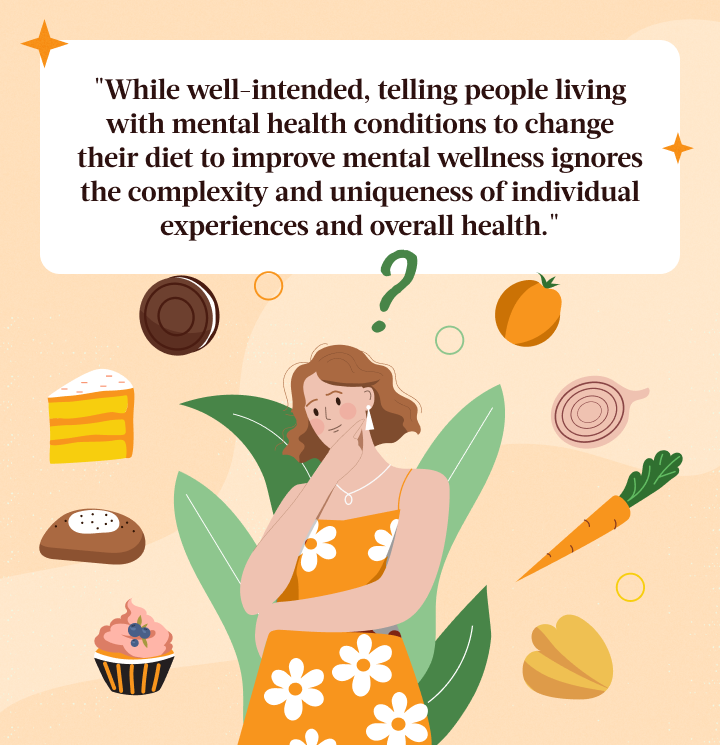Myth Busting the Link Between Food and Mental Health

Most healthcare providers agree that a healthy diet is an important aspect of overall health and wellness for the majority of patients. However, many ideas about food and mood or mental health are not founded in science, despite conventional wisdom that attempts to find easy fixes for complex problems.
Myth: Comfort foods improve mood
Fact: Eating your favorite food after a hard day may seem like an easy way to cope with stress and cheer yourself up, but researchers have not found this to be the case. One study found no significant difference in the improvement of mood among participants who had comfort food, non-comfort food, or no food after experiencing negative moods.

Myth: Processed foods and sugary beverages cause poor mental health
Fact: It’s not that simple. Consuming processed fruits and vegetables may have a positive impact on mental health. One study found a significant association between poor mental health and consuming sugar sweetened beverages one or more times per day. However, an association does not indicate causation.
Excessive sugar consumption is considered a “hypothesized contributor to poor mental health.” Another study determined that individuals who report high ultra-processed food consumption are more likely to report depression and anxiety. Further research is needed to understand these associations more completely to uncover potential correlation or causation.
Myth: Certain diets cure mental health disorders
Fact: The popularity of fad diets as a solution for poor mental health can present risks when misapplied. Fad diets are typically associated with weight loss and often based on junk science or oversimplifications of valid, statistically significant research. There is some research that supports the application of the mediterranean diet to improve outcomes related to depression and anxiety; however, this does not indicate a complete resolution of symptoms.

Myth: Eating fruits and vegetables prevents and treats mental health disorders
Fact: It’s complicated! A systematic review of studies on fruit and vegetable intake and mental health concluded that eating fruits and vegetables and meeting the recommended five servings per day may be beneficial to mental health. Poor diet can contribute to poor mental health over time, but there is no magic ingredient, nutrient, or dietary supplement that will quickly alleviate mental health disorders.
The phrase “you are what you eat”, while catchy may not be helpful as mental health advice. While well-intended, telling people living with mental health conditions to change their diet to improve mental wellness ignores the complexity and uniqueness of individual experiences and overall health. Some people are more or less susceptible to certain mental health disorders due to a range of factors including genetics, family history and lived experiences/traumas.
If you suspect that you might have issues with your diet that could be affecting your mental health, it’s important to consult a qualified medical provider. Your medical provider should partner with you to determine a diagnosis, if applicable. You’ll want your provider to develop a plan of care for you that includes any nutritional changes or dietary supplements, and which is tailored to your unique needs, with appropriate support to benefit your mental health.

Comments ()